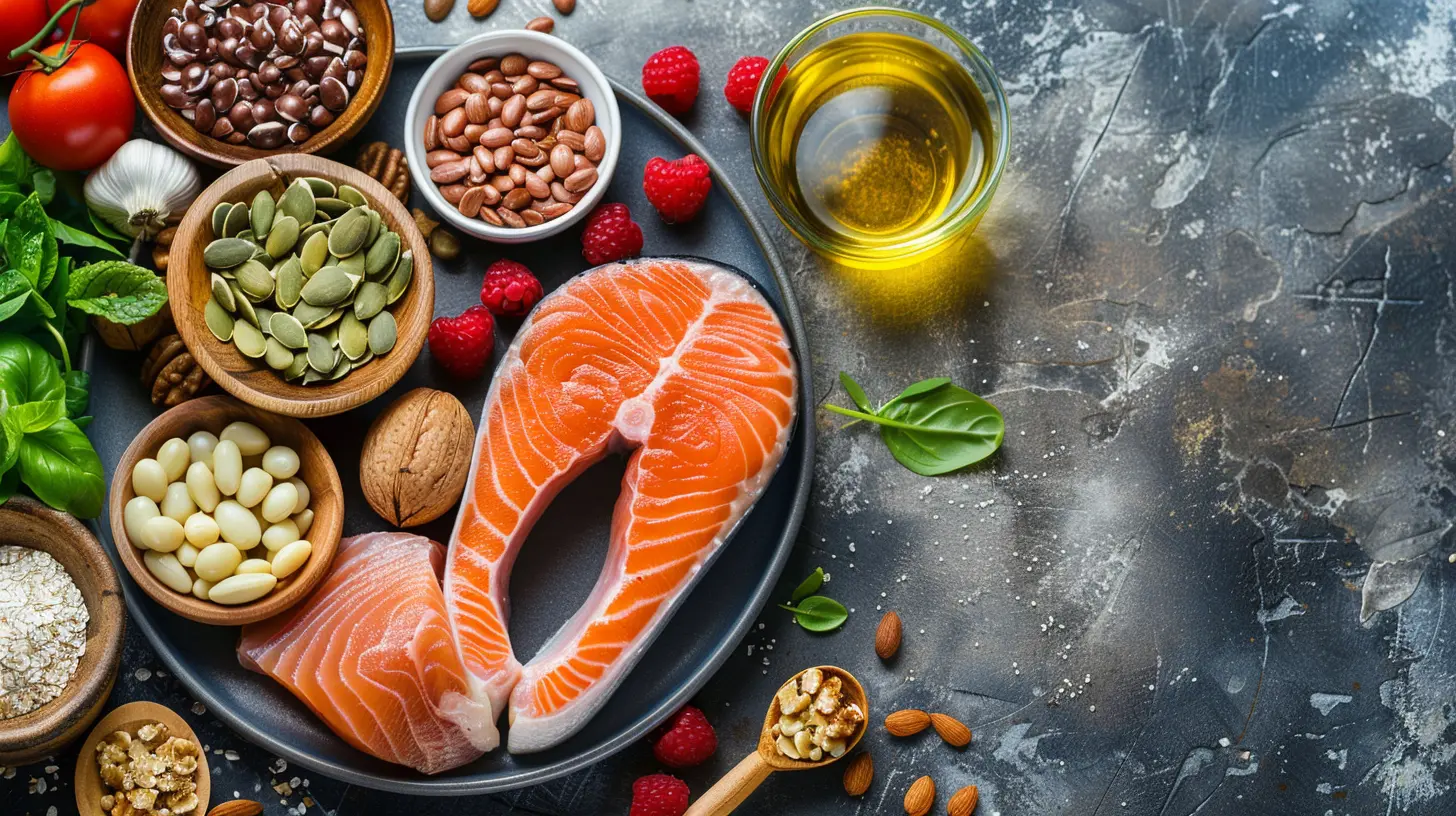Can You Have Too Low Cholesterol? Understanding the Risks
6 August 2025
When we hear the word “cholesterol,” we usually picture something bad. Doctors warn us about high cholesterol all the time—and for good reason. It can clog arteries, increase the risk of heart attacks, and lead to a host of cardiovascular issues. But here’s something you probably haven’t heard often: What about low cholesterol? Can it be too low?
Yeah, it’s not a question people ask a lot. Most of the time, we’re laser-focused on bringing cholesterol down. But what if in our quest for "perfect health," we’re knocking it down too much? Is that even possible?
Spoiler alert: Yes, it is. Having too low cholesterol comes with its own set of issues. Your body needs cholesterol. It’s not just some villain that lurks in your bloodstream, waiting to strike. It plays a crucial role in keeping your body ticking smoothly.
Let’s break it all down.
What Is Cholesterol Anyway?
Before we dive into the dangers of having too little cholesterol, let’s get one thing straight: What exactly is cholesterol?Cholesterol is a waxy, fat-like substance that’s found in every cell of your body. Sounds weird, right? You probably don’t picture your cells being coated in wax. But cholesterol is super important. Your body uses it to:
- Build cell membranes
- Make certain hormones (like estrogen and testosterone)
- Help your body produce vitamin D
- Aid digestion through bile acids
Oh, and here’s the kicker—your body actually makes cholesterol. That’s right. Even if you cut it out of your diet completely, your liver will still produce it because it's just that vital.
The Different Types of Cholesterol
You've probably heard of "good" and "bad" cholesterol, right? Let’s simplify that:- LDL (Low-Density Lipoprotein): This is often labeled the “bad” cholesterol because high levels can lead to plaque buildup in arteries.
- HDL (High-Density Lipoprotein): This is the “good” one. It helps remove LDL from your bloodstream.
- Triglycerides: Not technically cholesterol, but usually grouped with them. High levels are linked to heart disease.
Whenever people talk about lowering cholesterol, they usually mean lowering LDL and raising HDL. But here’s where things get tricky… if you lower your total cholesterol too much, you might be bringing down HDL too—or suppressing essential functions in your body.
So, Can Cholesterol Be Too Low?
Short answer? Yes.Now, we’re not just making this up. Several studies and medical professionals have found that extremely low levels of cholesterol can have negative effects on your health.
Here are some of the risks:
1. Mental Health Issues
Let’s start with the brain. Have you ever heard the phrase “your brain is mostly fat?” Not super flattering, but it’s true—your brain is loaded with fats, including cholesterol.Cholesterol is essential for the production of neurotransmitters like serotonin, the “feel-good” chemical. If your cholesterol levels are too low, it could throw off your brain’s chemical balance.
Studies have shown links between very low cholesterol levels and:
- Depression
- Anxiety
- Irritability
- Even suicidal thoughts
Scary, right? Who would’ve guessed that trying to stay "heart-healthy" could mess with your mood?
2. Hormonal Imbalance
Here’s another area where cholesterol plays a starring role: hormones.Cholesterol is a building block for hormones like:
- Estrogen
- Testosterone
- Cortisol
If your cholesterol dips too low, your body might struggle to produce them properly. This could result in things like reduced libido, fatigue, menstrual irregularities, or even fertility issues.
Think of cholesterol like the bricks in a wall. No bricks? No wall. No cholesterol? No hormones.
3. Increased Risk of Certain Cancers
This part is still being explored, but some studies have suggested a possible connection between very low cholesterol and higher risks of certain cancers, such as:- Liver cancer
- Lung cancer
- Stomach cancer
Now, does that mean low cholesterol causes cancer? Not necessarily. It’s a bit of a chicken-and-egg situation. It could be that undiagnosed cancers lower cholesterol, rather than the other way around. But still, it’s a red flag worth paying attention to.
4. Hemorrhagic Stroke
Not all strokes are created equal. When we talk about strokes, we often mean ischemic strokes, which are caused by blood clots. High cholesterol contributes to these. So lowering cholesterol helps, right?Yes—until it goes too far.
There’s another type: the hemorrhagic stroke, which happens when a blood vessel bursts. Low cholesterol may weaken blood vessels, increasing your risk of this kind of stroke. So ironically, being too aggressive about lowering cholesterol might up your risk of a stroke… just a different kind.
5. Poor Immune Function
You might not know this, but cholesterol helps your body fight infections. It plays a role in immune system regulation and in healing processes.Some animal studies have even shown that low cholesterol levels can make it harder for the body to fight off infections. Again, cholesterol isn’t just some artery-clogging goblin. It’s got jobs to do.
What's Considered "Too Low" Cholesterol?
Okay, so what’s the magic number?Most doctors want your total cholesterol to be under 200 mg/dL, with LDL ideally below 100 mg/dL. But when your total cholesterol drops below 120 mg/dL or LDL below 50 mg/dL, that’s when red flags start waving.
Keep in mind: these numbers can vary a bit depending on your age, sex, and overall health. Always, always talk to your doctor before freaking out about test results.
Who's at Risk of Low Cholesterol?
Now you’re probably wondering… “Am I at risk?”Low cholesterol isn’t super common, but it can happen—especially in people who:
- Take strong statins or other cholesterol-lowering medications
- Have poor nutrition or eating disorders
- Suffer from chronic illnesses like cancer or liver disease
- Follow extreme low-fat diets
- Have genetic conditions that cause naturally low cholesterol
A lot of the time, people don’t even know they’re dealing with low cholesterol until symptoms start creeping up—or until routine bloodwork catches it.
Signs Your Cholesterol Might Be Too Low
While there’s no flashy “low cholesterol symptom” to watch out for, some signs can hint at the problem:- Fatigue or brain fog
- Unexplained mood swings or depression
- Hormonal issues
- Unusual bleeding or bruising
- Weak immune response
If you’re feeling “off” and can’t figure out why, it might be worth checking those lipid levels.
Can You Raise Cholesterol If You Need To?
Absolutely. If your doctor says your cholesterol is dangerously low, there are ways to bring it up safely. Here’s how:1. Adjust Your Diet
Don’t go chugging bacon grease, but you can introduce more healthy fats into your meals:- Avocados
- Eggs
- Olive oil
- Fatty fish like salmon and mackerel
- Nuts and seeds
2. Review Your Medications
If you’re on statins or other cholesterol-lowering drugs, talk to your doctor. You might need a lower dosage—or a different medication altogether.3. Balance Your Lifestyle
Be mindful of over-exercising or extreme dieting. Your body needs fuel to run, and fat (yes, even cholesterol) is part of that fuel.Finding The Sweet Spot
Here’s the takeaway: Cholesterol shouldn’t be too high OR too low. It’s all about balance.Think of cholesterol like a thermostat. Too hot? You sweat. Too cold? You freeze. You want that perfect, cozy middle ground. Your body is the same—extremes throw it off.
So yes, lowering cholesterol is important if it’s high. But don’t fall into the trap of thinking that lower is always better. That’s simply not the case.
Final Thoughts
We live in a world obsessed with lowering cholesterol. Commercials, health articles, even cereal boxes are always telling us how to bring those numbers down. And sure, for many people, that’s necessary. But like most things in life, there’s a line you don’t want to cross.Too little cholesterol? That’s a problem.
Hopefully now, you’re a little more curious and a lot more informed. Whether you're managing your own cholesterol levels or you're just health-curious, keep this in mind: balance is everything.
Remember, your body isn’t a machine—it’s an ecosystem. And ecosystems need harmony, not extremes.
So, next time someone yells from the rooftops about lowering cholesterol, just whisper back, “But not too low, right?
all images in this post were generated using AI tools
Category:
CholesterolAuthor:

Sophia Wyatt
Discussion
rate this article
1 comments
Marcus McAdams
Too low cholesterol? Sure, but who wants to trade their fries for kale smoothies? Balance is key, folks!
August 15, 2025 at 3:46 PM

Sophia Wyatt
Absolutely, finding balance is essential! Enjoying treats in moderation while maintaining healthy cholesterol levels can lead to better overall health.


